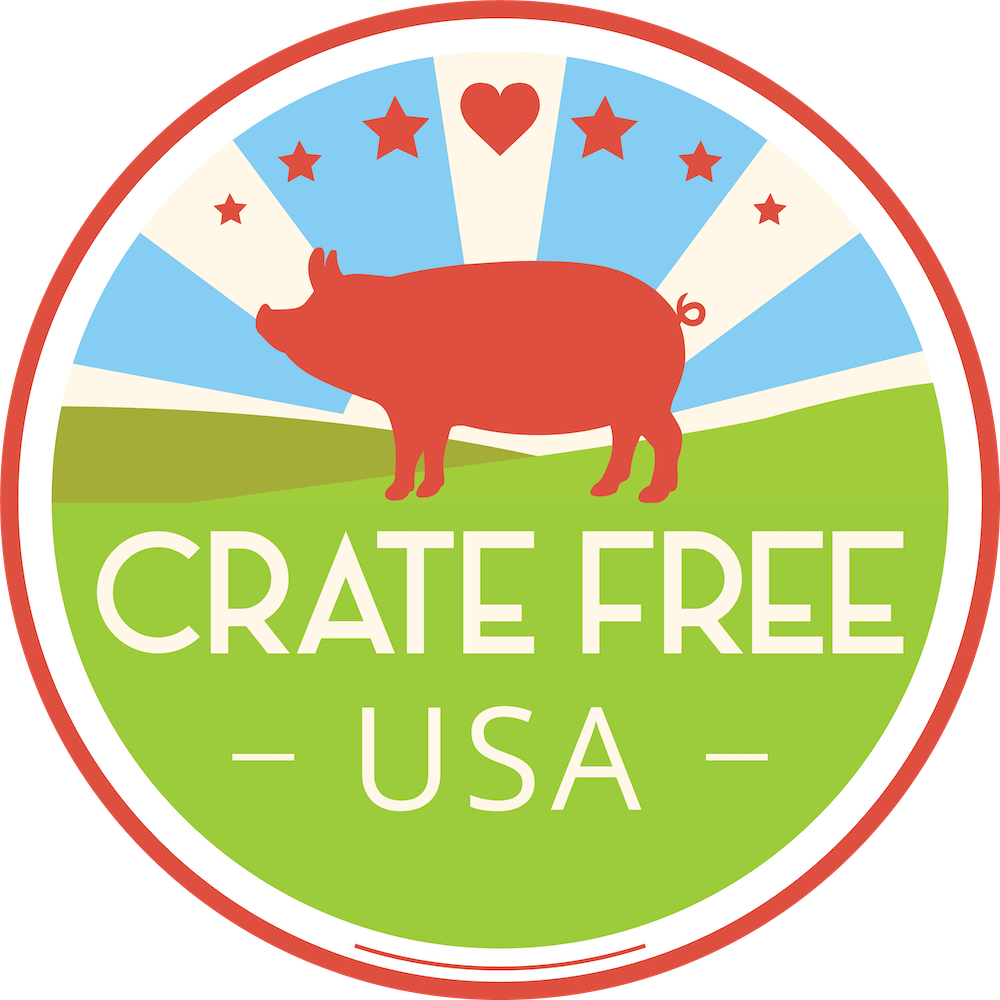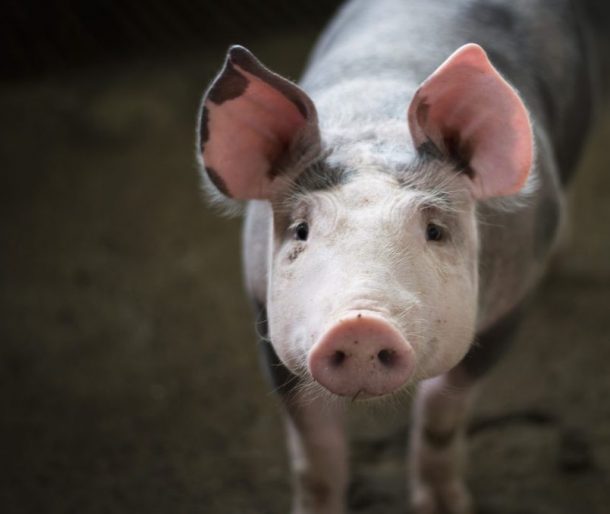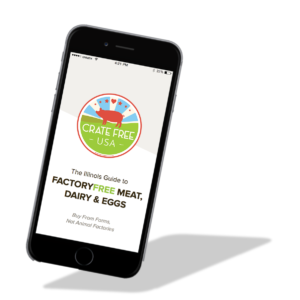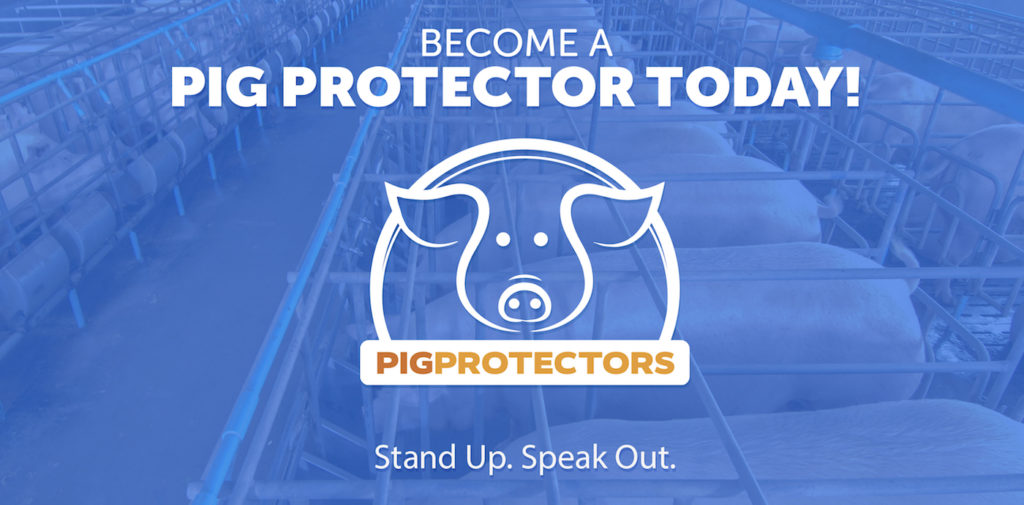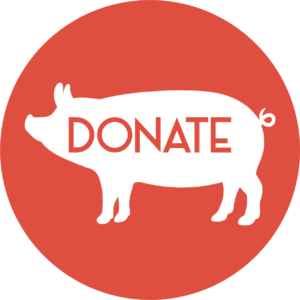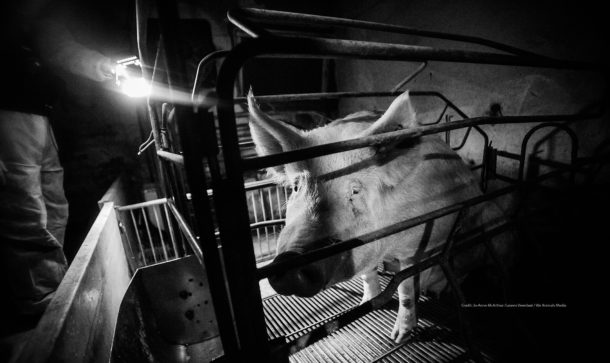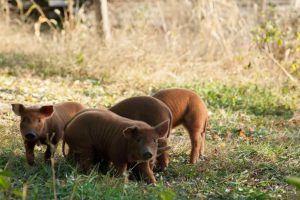
Hart’s Heritage Farm is a great example of how pigs should be raised.Photo Credit: Hart’s Heritage Farm
By Emma Eichelman
Recently I interviewed Jim Hart, a farmer that works at his own Hart’s Heritage Farm. It is a 248 acre farm located near Edinburg, Illinois that has been in his family for several generations. They raise hogs, cattle, goats, and poultry. They are all mostly heritage breeds and all pasture raised. We conducted a short interview regarding his farm and his thoughts on crate-free practices.
Q: Do you supplement fresh grass with feed? What kind?
A: We do supplement and at the moment we are using mostly non-GMO feeds.
Q: How did you become involved in farming?
A: My grandpa was a farmer and that tradition goes back at least six generations in my family.
Q: How do you market and sell your products? Direct to consumers, CSA, or through retailers?
A: It varies; some of our market hogs we sell to Niman Ranch, while our beef, poultry, eggs, and some pork is sold directly to the consumer.
Q: How has your business changed over the last several years? Are you considering expansion or changing it?
A: We are looking to add more on the beef and pork side. Along with that, we will be doing more with broilers (chickens) to come in behind those animals and help with parasite control. We have been really busy the last couple of years with barns and other projects that we have let some of the sustainable practices we were wanting to implement take a back seat to other things. We plan to get back on track with the sustainable practices by bringing in draft animals and growing more of our own feed.
Q: How have the economics of farming changed in the last several years? What further changes are you anticipating?
A: Market prices are down on both beef and pork compared to the last couple of years, but that can always change. The demand for pasture raised, antibiotic free, and cage free proteins has increased recently and I think that this trend will continue. I also think that we will see an increase in demand for non-GMO products.
Q: Have you been involved in confinement farms as well as crate-free farms?
A: When I was younger I worked on a hog finishing farm where my job was to go in and clean the barns after the market hogs were taken off but before the new ones came in. The smell was horrific, even when all of the hogs were gone from the barn it would still stink like there were hundreds in there. I would be in a sealed rubber suit when I worked but would still have that smell in my hair and clothes for days after the job was finished.
Q: What are your views on the criminalization of extreme confinement?
A: I think gestation crates are horrible and would support a ban on them. Although my farm does not use farrowing crates, I do understand the need for them on large production farms.
Q: What do you expect the economic implications for Illinois would be?
A: There are already some of the larger producers making some changes, so some of those guys would still be around. I think that a statewide ban would cause some of the bigger companies to move operations out of state, and maybe even overseas, where regulations would have no effect on them. They then would have to import their products back to the United State.
Q: Would you support a bill to stop extreme confinement? Why or why not?
A: I would support a ban on gestation crates. I love to watch my hogs, they have a social structure and they like to interact with other pigs in their group. Many of my sows are just like pets, they will come up to me and expect a scratch behind their ears or a belly rub. I can’t imagine penning on up in a crate for four months. I think a lot is lost in those genetic lines when you treat several generations of an animal in such a way. That leads to a loss in diversity in the food supply, which isn’t a good thing and is cruel to the animals.
